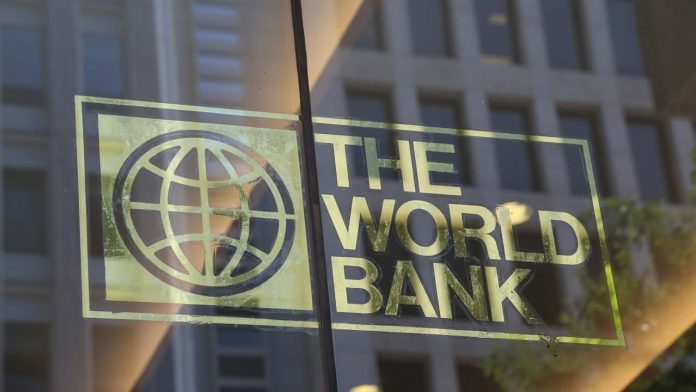The World Bank has revealed that rural poverty in Nigeria has reached 75.5 per cent, with the country’s most vulnerable populations bearing the brunt of economic stagnation, insecurity, and persistent inflation.
In its April 2025 Poverty and Equity Brief for Nigeria, the Bank said the poverty rate among Nigeria’s rural population is almost double that of urban dwellers, where 41.3 per cent are classified as poor. The data was drawn from Nigeria’s most recent nationally representative household surveys.
According to the report, 30.9 per cent of Nigerians were living below the international extreme poverty line of \$2.15 per day in 2018/19, before the COVID-19 pandemic. However, poverty levels have worsened considerably since then. The World Bank now estimates that by 2024, over 54 per cent of Nigerians will be living in poverty.
“Multiple shocks in a context of high economic insecurity have deepened and broadened poverty,” the report stated. “Since 2018/19, an additional 42 million people fell into poverty, so that more than half of all Nigerians (54 per cent) are estimated to live in poverty in 2024, based on World Bank projections.”
The Bank said the poverty burden is not evenly distributed. The 2018/19 data showed a regional divide, with poverty rates in Nigeria’s northern geopolitical zones at 46.5 per cent compared to 13.5 per cent in the southern regions. The inequality gap, measured by the Gini index, stood at 35.1. The World Bank also introduced Nigeria’s “Prosperity Gap,” defined as the factor by which incomes must be multiplied for individuals to reach a standard of \$25 per day. Nigeria’s gap was estimated at 10.2, higher than many of its peers.
The report linked rising poverty to a mix of long-standing structural economic weaknesses, particularly Nigeria’s dependence on oil, lack of job creation, and the limited productivity of agriculture, especially in rural areas.
The World Bank pointed out that in rural areas, people’s ways of making a living are strongly tied to farming, which is often just enough to survive on. This farming has limited improvements in how much it produces and isn’t well-suited to deal with the increasing problems caused by climate change.
The analysis showed that children aged 0–14 years are among the worst affected, with a poverty rate of 72.5 per cent. Gender disparities were also recorded, with 63.9 per cent of females and 63.1 per cent of males classified as poor at the lower-middle-income poverty line of \$3.65 per day.
Education was identified as a key determinant of poverty. The poverty rate among adults with no formal education stood at 79.5 per cent. Those with only primary education faced a 61.9 per cent poverty rate. Even among those with secondary education, half still lived below the poverty line. Tertiary education offered some protection, with the poverty rate dropping to 25.4 per cent among graduates.
The World Bank also highlighted multidimensional poverty, revealing that 32.6 per cent of Nigerians lack access to limited-standard drinking water, 45.1 per cent do not have adequate sanitation, and 39.4 per cent have no electricity. About 17.6 per cent of adults have not completed primary education, and 9 per cent of households have at least one out-of-school child.
The report noted that before the pandemic, poverty reduction had already slowed. “Extreme poverty reduction had almost stagnated, dropping by only half a percentage point annually since 2010. Living standards of the urban poor are hardly improving, and jobs that would allow households to escape poverty are lacking.”
While the government has rolled out temporary cash transfers for 15 million households, the Bank said these efforts are not enough. It recommended reforms focused on shielding the poor from inflationary shocks and creating more productive employment opportunities.
The World Bank stated that while recent economic adjustments are starting to bring stability, high inflation persists, weakening what consumers can buy and eroding the value of Nigerians’ money. Because wages haven’t increased as much as prices, many Nigerians, especially those in cities, are being pushed into poverty.
The Bank urged Nigeria to strengthen social protection systems and invest in human capital development through education, health, and infrastructure. It also advised the government to intensify efforts at diversifying the economy beyond oil.






